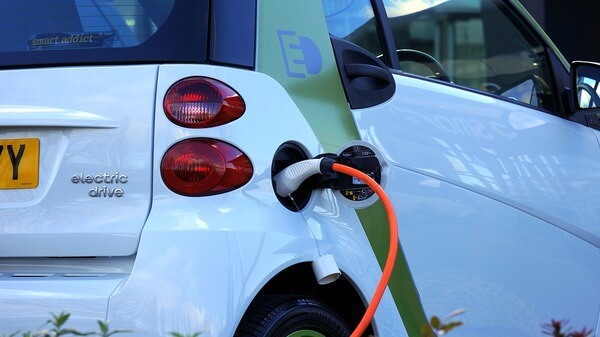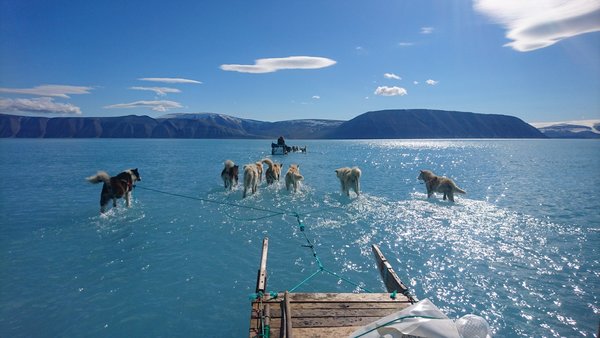News Release from windfair.net
Wind Industry Profile of
Is the End of Mankind Approaching?
Every year the New Energy Outlook (NEO) compares the costs of competing energy technologies through a levelized cost of energy analysis. Meanwhile, wind and sun are the most cost-effective options for power generation in about two thirds of the world. Electricity demand is expected to grow by 62% in the coming years, almost tripling global generation capacity between 2018 and 2050.
The share of coal in the electricity mix will fall from 37% today to a negligible 12% by 2050, while oil as a source of power generation will be virtually eliminated. Instead, electricity is mainly generated from wind and sun. By 2050, this share will rise from 7% today to a total of 48%. The contributions of water, natural gas and nuclear energy will remain roughly the same in percentage terms.
Matthias Kimmel, NEO 2019 lead analyst, explains the results: "Our power system analysis reinforces a key message from previous New Energy Outlooks – that solar photovoltaic modules, wind turbines and lithium-ion batteries are set to continue on aggressive cost reduction curves, of 28%, 14% and 18% respectively for every doubling in global installed capacity."
By 2030, the energy generated or stored and dispatched by these three technologies will undercut electricity generated by existing coal and gas plants almost everywhere. The report concludes that subsidies for renewables will no longer be necessary in the future.
"The days of direct supports such as feed-in tariffs are coming to an end," says Elena Giannakopoulou, head of energy economics at BNEF. "Still, to achieve this level of transition and de-carbonization, other policy changes will be required – namely, the reforming of power markets to ensure wind, solar, and batteries are remunerated properly for their contributions to the grid."

More electric vehicles lead to higher power consumption (Image: Pixabay)
Europe has a key role to play, because decarbonisation will be fastest in the European Community. By 2050, 92% of electricity in Europe could already be generated from renewable energy sources. The US and China will follow more slowly, as the pressure towards decarbonisation is significantly lower due to the still abundant raw materials in the coal and gas sectors.
However, even the NEO report can't do without issuing a warning: In order to achieve the goal of limiting global warming to 2 degrees Celsius, much more needs to be done than just expanding renewables. 100% electrification of road traffic and the heating of residential buildings, for example, will make it necessary to significantly expand power generation overall. For this reason, new technologies must be specifically promoted - Power2X is just one key word here. This is also where the report sees the biggest problems so far, because the individual countries must focus specifically on a policy that is at the same time innovation-friendly, but also brings security through long-term programmes.
Another report, which pursues a worst-case scenario, makes it clear that time is of the essence. In their 'Existential climate-related security risk: A scenario approach', David Spratt and Ian Dunlop describe the end of the world that will befall mankind as early as 2050 - unless something radically changes in climate policy quite quickly.
In their report they refer, e.g. to the emeritus director of the Potsdam Institute, Prof. Hans Joachim Schellnhuber, who warns that "climate change is now reaching the end game, where very soon humanity must choose between taking unprecedented action, or accepting that it has been left too late and bear the consequences". If humanity continues along the present path, there is a very great risk "that we will just end our civilization. The human species will survive somehow but we will destroy almost everything we have built up over the last two thousand years."

A picture tells its all: Climate researcher Steffen M. Olsen from the Danish Meteorological Institute posts a picture from Greenland on Twitter showing sled dogs who have to pull their sled through ankle-deep melt water (Image: Twitter)
The consequences would be far-reaching: from weather extremes that make certain regions uninhabitable or simply flood them, to the destruction of entire ecosystems, to socio-economic problems. Drought and poor harvests would lead to further refugee movements worldwide, but above all towards Europe. However, it will then be virtually impossible to produce food for Europe's own population.
A true apocalyptic scenario, that Spratt and Dunlop draw in their report - showing what CAN happen, but doesn't necessarily have to. Their report ends with a call to politics to act. And fast!
- Author:
- Katrin Radtke
- Email:
- press@windfair.net
- Keywords:
- BNEF, Bloomberg, climate, electricity, outlook, scenario, apocalypse, civilization, global warming, climate change























